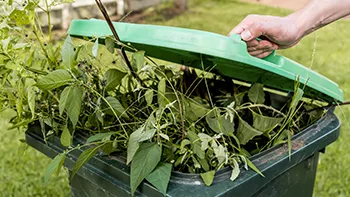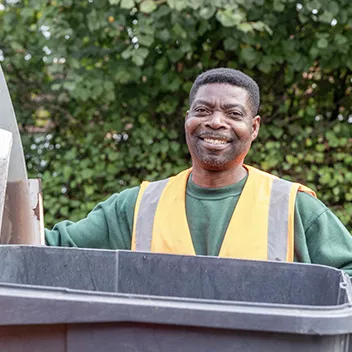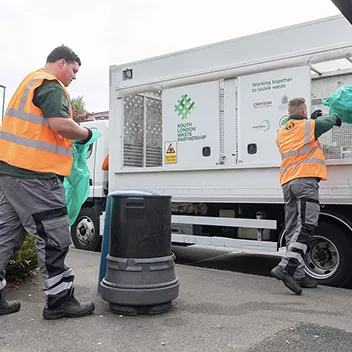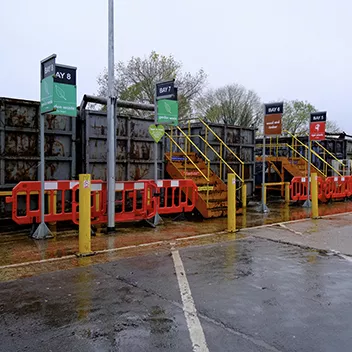
Garden waste collections
Our garden waste collection service is reliable, convenient and cost-effective. 69,000 subscribers can’t be wrong! Avoid a trip to the tip and sign up today.
You can have a wide range of large or bulky items collected from your property by using our bulky waste collection service.
This service is ideal for getting rid of items that cannot be easily transported to your local council-run Household Reuse and Recycling Centre. Things like: sofas, armchairs, tables and chairs; white goods such as fridges and dishwashers; bathroom items such as sinks, toilets and baths; bicycles and garden furniture; beds and mattresses; carpets and rugs.
The service is operated by our partner, Veolia, and runs six days per week. Collections can be booked and paid for via your local council’s website (see links below).
Last year, 78,695 bulky items were collected through the service *
Customers of the bulky waste collection service benefit from:
You can book and pay for a bulky waste collection on you local council website:
* Based on 2020/21 data (April 2020 – March 2021)

Our garden waste collection service is reliable, convenient and cost-effective. 69,000 subscribers can’t be wrong! Avoid a trip to the tip and sign up today.
Most preferred environmental option
Reducing waste is the most preferred option. Minimising the amount of waste we produce in the first place is by far the most effective way of reducing the impact we have on the environment.
When waste is created, the waste hierarchy prioritises reuse. Where possible, reusing products and materials before it becomes waste is the next best option. By cleaning, repairing and refurbishing items, we can significantly increase the number of things we reuse.
Recycling is the most environmentally sustainable solution when it comes to disposing of waste. Recycling essentially turns our waste into new items or products, reducing the amount of raw materials required.
For waste that can’t be re-used or recycled, energy recovery is the next best option. Energy from waste is the process of incinerating non-recyclable waste to produce electricity. It helps to reduce our reliance on fossil fuels for power generation and decreases carbon emissions.
At the bottom of the waste hierarchy is the least desirable option: disposal. This is when waste is either sent to landfill or treated in an older-style incinerator that doesn’t recover energy from the process. Disposal should always be the last resort for waste.
Least preferred environmental option


